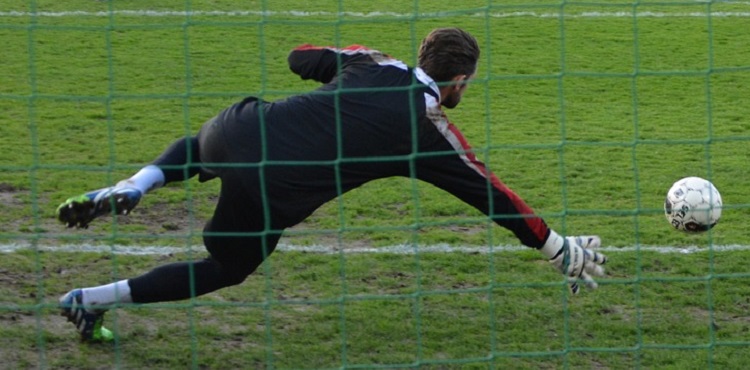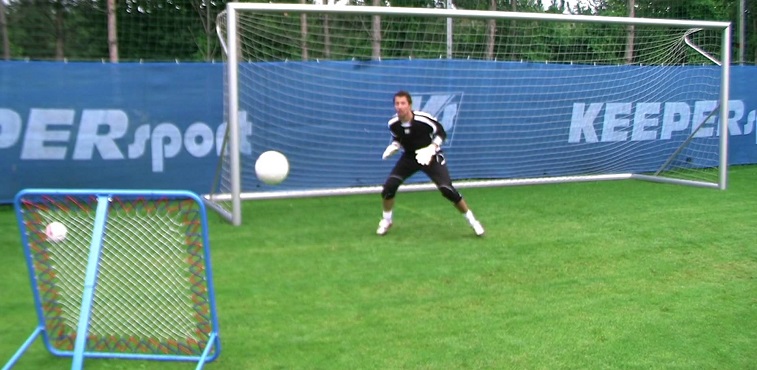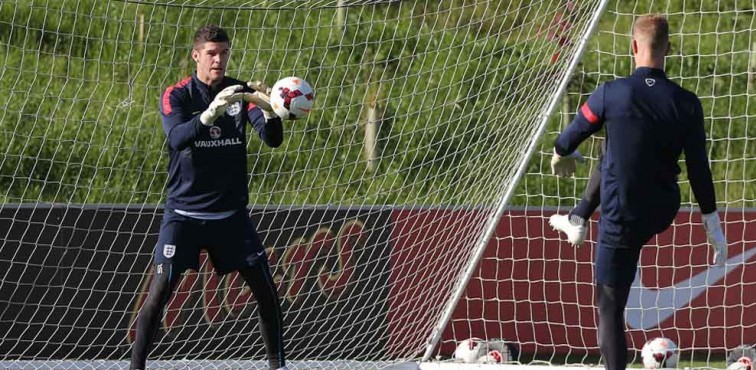How to Deal with Pre-game Nerves
Advice and help for goalkeepers struggling with nerves

A lot of goalkeepers have felt those pre-game nerves, especially before a big game, be it a cup final, a crucial league game or even a big local derby against your friends at school.
So we see the same questions from keepers all the time, ‘how can I get rid of my nerves?’ or ‘how can I stop myself getting nervous?’.
A lot of the time these questions come from keepers on Facebook or Twitter which limits how much detail we can provide to, so we decided we would create an in-depth post that will hopefully help in the future.
Why do I get nervous before a game?
Let’s take a quick look at the science; there is a biological chain reaction that occurs which causes us to feel nervous.
When you care about something you build it up into a high-pressure situation and when your brain receives information from one of your senses – like when you see that you are arriving at the ground or when you are getting changed and know it’s almost game time it sends this information to a part of your brain called your amygdala.
The amygdala is the part of your brain responsible for controlling your emotions; and in a high-pressure situation your amygdala sends a signal of ‘danger, danger’ to another part of your brain – the hypothalamus.
I try to stay calm and view it as just a game of football. I also try and convert that pressure into adrenaline. Bailey Peacock-Farrell, Leeds United
The hypothalamus tells your adrenal glands to release a surge of cortisol and adrenaline which in turn crank up your heart rate and blood pressure as well as increasing glucose levels to give your muscles more fuel.
In a fight or flight situation this means our body is ready to run away from a situation or we have new found strength to conquer physical challenges! Think of those videos where you see people lift cars off the floor with their bare hands in a bid to save their loved ones in an accident.
But when we can’t run away, and we’re sat in a changing room or in the car before the game – we just have a body full of hormones we can’t really use and start to freak out and even on the pitch a body full of adrenaline and in fight or flight mode can cause us to make errors.
So is being nervous good or bad?
Well, it depends how you control them and what you’re doing. Firstly, let’s make one thing really clear, it’s fine and normal to get nervous before a big event. All it means is that what you are about to do, matters to you.
Let me state that again in another way, feeling nervous just means you really, really want to perform well in the game ahead.
Nerves are normal before big games. Try not to over think & stay calm because it will transmit the same to your team. Dimi Konstantopoulos, Middlesbrough
That doesn’t sound too bad when it’s phrased like that, does it? Sports psychologists call this process ‘labelling’, next time you are feeling nervous before a big game don’t think ‘I’m nervous’, instead think, ‘wow I really want this and my body is ready for it’.
We know from scientific studies that having all those hormones we spoke about above flowing around your body can improve performance. They can heighten your senses, improve your reaction time and that extra glucose in your muscles can help you jump higher, dive further and run faster than normal!
All sounds great right? Sign me up for a bottle of nerves before any big game.
Not quite, nerves can also be inhibitors, these hormones are designed for simple run away fast or fight hard behaviours which are both ‘active’ behaviours based on impulse without much thought being required.
In a game situation, this adrenaline fuelled body and brain can cause you to make poor impulsive decisions like trying to come for a cross that you’re never going to get or rushing out to a through ball you will never win.
Have you ever tried to stand in the middle of your goal and not move to save an important penalty in a big match? The statistics will tell you that you have a good chance of saving it, but when under pressure the decision to not do anything is an immensely difficult one as your body wants you to do something when filled with adrenaline.

So how can I control my nerves?
The key is not to try and get rid of them all together, but rather to ensure that they don’t take control of you and cause you to freeze.
Everyone will have a different level of nerves that they perform their best at so if you’re feeling so nervous you want to vomit and can’t move then you need to try and bring those nervous feelings down a bit.
So here are a few ways you can control your nerves:
- Control your breathing – this is the quickest and easiest way to lower your heart rate and get your nerves under control. Try taking 6 breaths a minute – 4 seconds inhale, 2 seconds pause and 4 seconds exhale.
- Use labelling – remember those nerves are your body way’s of saying that it is READY and it knows this is important to you! Remember that…. You’re ready!
- Listen to music – If you’re feeling nervous then your heart rate is already fast, so pick a song with a BPM of about 90 beats per minute. Preparing a playlist of these songs you can throw on quickly is a great idea!
- Use visualisation – Think back to those highlight moments in the past, how you saved the match winning penalty or made a vital save or took a big cross. You CAN DO what you’re about to do, you’ve done it all before!
- Get enough rest – Make sure you get a good night’s sleep the night before the match, it’s much harder to control nerves when your body is sleep deprived.
- Eat properly before a game – Science tells us that foods high in carbs such as pasta and potatoes give us calming hormones to help control anxiety.
- Find your power pose – When we are nervous our body posture shrinks, we slump forward, our shoulders become narrow and we look small. This is the exact opposite to what we need to control our body, if you’re sat down in the changing room then sit up big and tall, broaden your shoulders and plant your legs and arms nice and wide whilst doing your breathing exercises above.
- Focus only on what you can control – There is no point worrying about what ifs about the whole game. Focus on just what you need to do and let the rest take care of itself.
Big game nerves are handled well before kickoff. Mentally preparing yourself throughout the week is the most important aspect of handling nerves.
On game day, being fully absorbed in the task at hand keeps you from thinking about distractions. There is no pressure when you are in the moment. Evan Bush, Montreal Impact
Hopefully these tips will help you the next time you’re feeling nervous, we’ve also scattered this post with a few comments from some professional keepers about how they manage their nerves before a big game for two reasons.
Firstly, so you can learn from them and their techniques and secondly to show you that everyone gets nervous, no matter how good or experienced you are, so accept it and label it for what it is.
If all else fails, remember two things from above – label it as your body being ready and if your nerves are getting the better of you, control your breathing until your body calms down.
I try to play like any other game and block out the side show that comes alongside big games. I focus on performing well and block out any negative thoughts. Michael McGovern, Norwich City and Northern Ireland
Please let us know if you try any of these techniques out or you have techniques of your own in the comments below!





